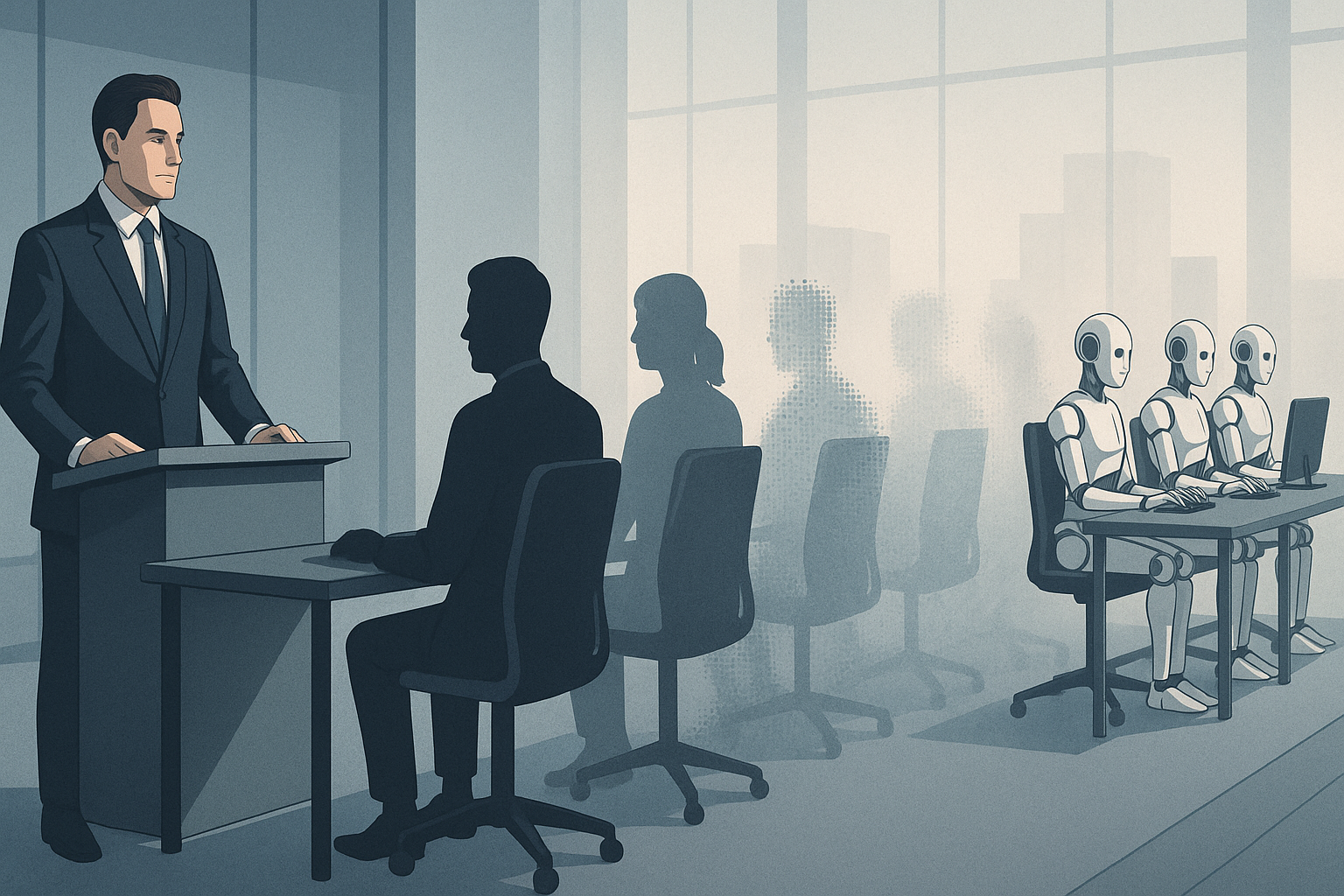Well, there it is.
In what might be the most refreshingly blunt (if utterly chilling) corporate announcement in recent memory, Salesforce CEO Marc Benioff has dropped the AI replacement pretense and just... said it. The company is cutting 4,000 jobs because—and I'm quoting directly here—"I need less heads."
No euphemisms. No corporate doublespeak about "streamlining operations" or "optimizing workforce capabilities" or whatever HR-approved phrase normally cushions these announcements. Just four brutal words that say what everyone in tech has been dancing around.
The timing couldn't be more telling. This comes after two years of tech companies pouring billions into AI development while simultaneously conducting wave after wave of layoffs. The connection has always been obvious to those of us covering the industry, but executives typically bend over backward to deny any relationship between the two.
Not Benioff, apparently. Not anymore.
I've been reporting on tech layoffs since the big wave started in 2022, and this marks a fascinating shift in how executives frame these decisions. It's like we've crossed some invisible line where pretending AI isn't replacing workers has become more awkward than just admitting it.
Look, Wall Street absolutely loved this honesty. Salesforce stock jumped after the announcement because—let's be real—nothing makes investors happier than hearing a company can maintain revenue while slashing labor costs. It's capitalism distilled to its essence: same output, fewer humans to pay.
The question this raises (the question we should all be asking) is what happens next?
If Benioff—who has cultivated an image as one of the more progressive and people-focused tech CEOs—is comfortable publicly linking AI to job cuts, what are less image-conscious executives planning?
The standard economic argument has always been that technology creates more jobs than it destroys. The automobile put horse-and-buggy operators out of business but created millions of jobs in manufacturing, sales, maintenance, and eventually ride-sharing. That's been the pattern for centuries.
But there's something different happening now. The speed and scope of AI's capabilities are unprecedented. When I spoke with several economists last month about AI's impact on employment, even the optimists seemed... less optimistic than usual.
(Worth noting: Salesforce isn't struggling financially. This isn't a desperate cost-cutting measure from a failing business. The company reported better-than-expected quarterly results alongside the layoff announcement.)
The tech industry has spent years telling us that AI would augment workers, not replace them—that it would handle the boring tasks and free humans for "higher-value work." It's been the central promise of the AI revolution.
That promise is now colliding with quarterly profit expectations and shareholder demands.
I'm not suggesting technological progress should be halted or that companies should maintain headcount regardless of business needs. That would be naive. But perhaps—just perhaps—we should be having a more serious societal conversation about how we manage this transition before it manages us.
Because if "I need less heads" becomes the new normal in corporate America, we're going to need a better plan than we currently have.
